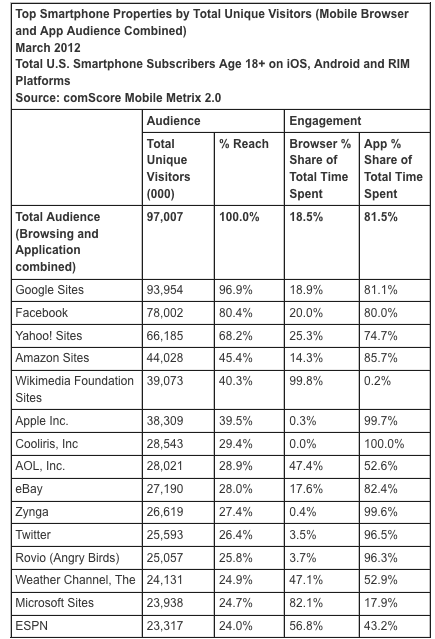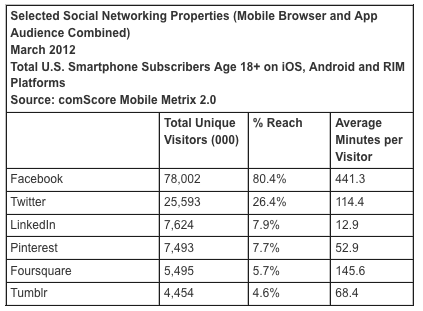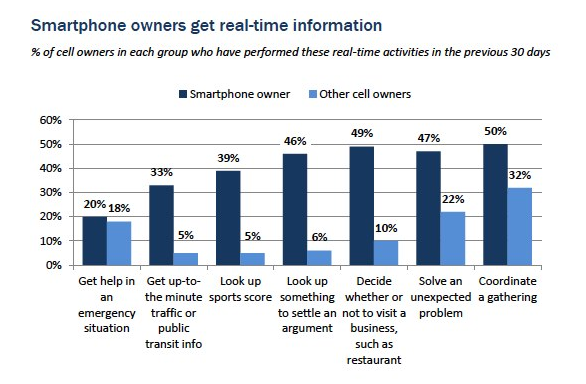Most Mobile Time Spent In Apps: Google Has Top Reach, Facebook Has Highest Engagement
- Fahad H

- May 8, 2012
- 2 min read
Mobile analytics provider Flurry
reported previously that people are spending huge amounts of time with mobile apps, more time than with the mobile browser and more time than on the PC. This may seem to some implausible, but comScore adds further credibility to the findings with its first “Mobile Metrix 2.0” report.
The data show that “4 in every 5 mobile media minutes” is spent with apps (vs. the mobile browser). Previously comScore had been reporting that apps and the mobile browser have roughly equal audiences. That’s still true but the company now confirms that people spend far more time with apps.
Google has the greatest mobile reach of any company. But Facebook is the mobile site/app that captures the highest engagement (time spent). On Facebook the breakdown is 80-20: “80 percent of time spent was represented by app usage compared to 20 percent via browser,” reports comScore.
Below are the top US smartphone properties, combining app and browser traffic.

Earlier this month Flurry reported that time spent with social networking apps has tied games, which had been the leading category in terms of engagement. Facebook is obviously seeing this activity internally; hence its new attention to mobile and recent acquisitions of mobile apps Gowalla, Instagram and Glancee.
Time spent with some social networking apps exceeds “corresponding time spent by users via traditional web access,” according to comScore. As mentioned, Facebook is the site/app that commands the most time in mobile. Facebook mobile engagement was “more than 7 hours via browser or app in March,” says comScore.
By comparison, Twitter saw roughly 2 hours of mobile engagement during March. On the PC, however, comScore said that Twitter.com saw just 20.4 minutes of average use during the month (this doesn’t reflect access via Twitter clients).

Separately yesterday the Pew Internet Projected released survey findings that show how US smartphone owners are increasingly turning to the devices for real-time or “just-in-time” information. The report is a reflection of how smartphones and mobile internet access are becoming increasingly integrated into people’s daily lives.





Comments